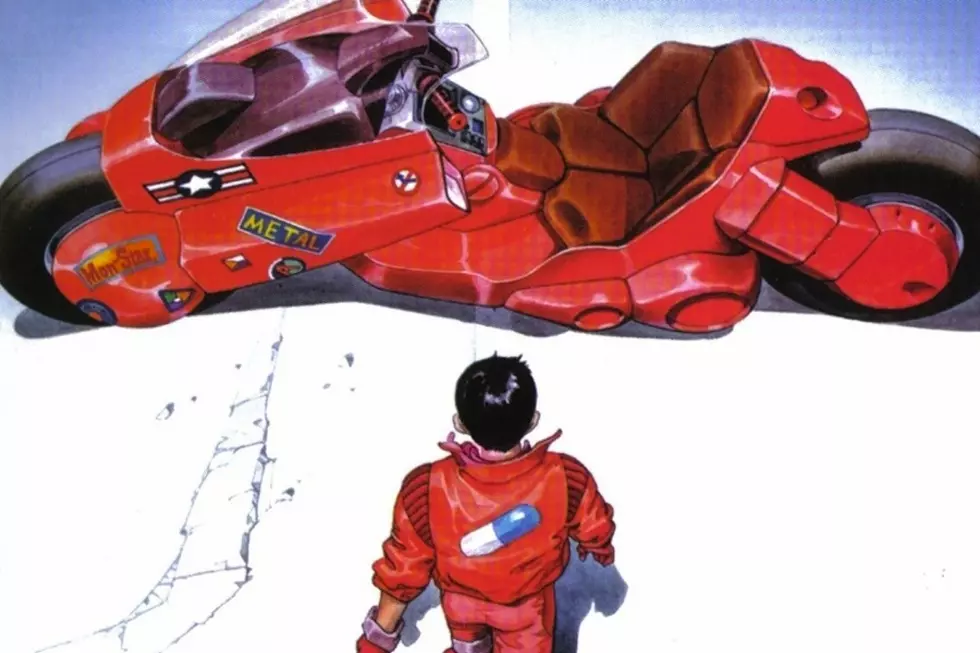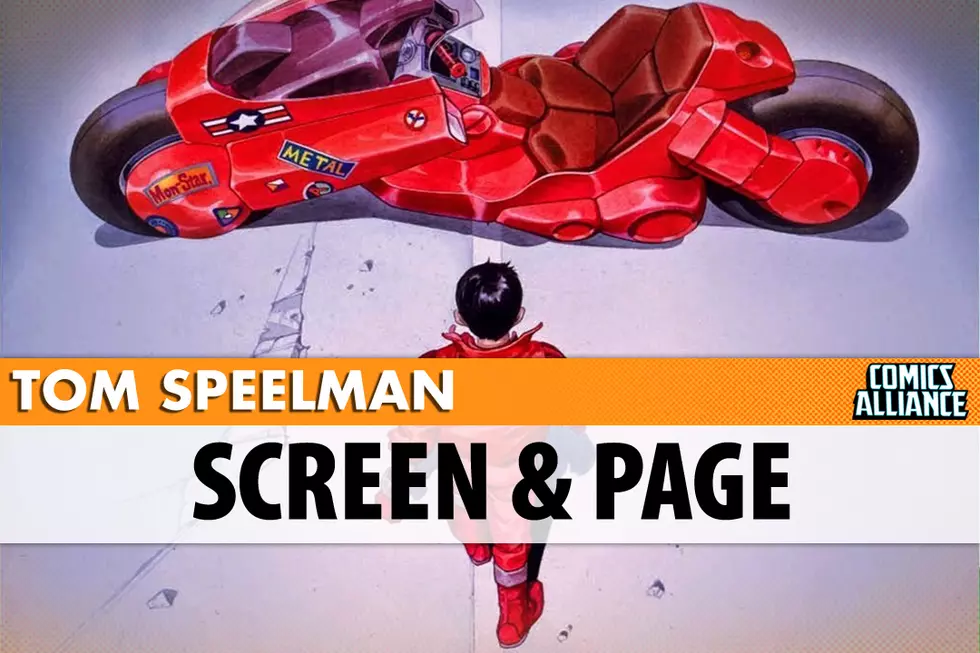
George Takei Petitions Against Hollywood’s Alleged ‘Whitewashing’ of ‘AKIRA’

Legendary Star Trek actor and social activist George Takei has spoken out against Warner Bros. Pictures' alleged plans to cast a live-action version of the classic Japanese animated film, AKIRA, with Caucasian leads rather than Asian actors. In response to the publication of a purported "short list" of actors including Justin Timberlake and Robert Pattinson, among others, Takei endorsed a Facebook petition called "Don't Whitewash AKIRA" that people can sign to make the powers that be aware of their wish for the film to be cast with Asians.Created by Katsuhiro Otomo in the form of a manga serial and feature-length animated film, both of which are considered landmark works of art and superlative examples of their respective mediums, AKIRA is an indelibly Japanese story of super-science, politics and youth in revolt set against a post-apocalyptic version of Tokyo. Its main characters are Kaneda and Testuo, two motorcycle gang members and the best of friends -- until the latter is cursed with uncontrollable powers.
Otomo explores apocalyptic themes in the series a way that only a Japanese creator could, telling the story of a conflicted, corrupt and desperate city borne out of a catastrophic event that recalls the bombings of Hiroshima and Nagasaki. Everything about the story is informed by the Japanese people's struggle to redefine their nation in the post-war era, including the shocking nihilism of its young protagonists.
Last month, Deadline published what its sources characterized as a short list of lead actors for the two principal roles in AKIRA: Robert Pattinson (Twilight), Andrew Garfield (The Social Network, Amazing Spider-Man) and James McAvoy (Wanted, X-Men: First Class) for Testuo; and Garrett Hedlund (TRON: Legacy), Michael Fassbender (X-Men: First Class, Inglourious Basterds), Chris Pine (Star Trek), Joaquin Phoenix (Walk The Line) and Justin Timberlake (everything that is ghastly and awful). None of these performers are Asian.

In an interview with The Advocate, Takei, who has long used his prominence to champion Asian-American actors and culture, correctly observed that fans of AKIRA strongly identify with Japan and the Japanese people.
The manga and anime phenomenon is mostly white in this country. It originated in Japan, and, of course, it has a huge Asian fan following. But it's the multi-ethnic Americans who are fans of Akira and manga. The idea of buying the rights to do that and in fact change it seems rather pointless. If they're going to do that, why don't they do something original, because what they do is offend Asians, number 1; number 2, they offend the fans.
Additionally, Takei said he is surprised that Warner Bros. hasn't learned from past mistakes with whitewashing like the abysmal Dragon Ball movie and, more specifically, M. Night Shymalan's similarly disastrous adaptation of Avatar: The Last Airbender, another piece of animation based on Asian culture that was remade with Caucasian performers:
The same thing happened with M. Night Shyamalan. He cast his project [The Last Airbender] with non-Asians and it's an Asian story, and the film flopped. I should think that they would learn from that, but I guess big studios go by rote, and the tradition in Hollywood has always been to buy a project, change it completely and flop with it. I think it's pointless, so I thought I would save Warner Bros. a bit of failure by warning them of what will most likely happen if they continue in that vein.
Despite the organized protest against the state of affairs surrounding the casting of AKIRA, it is all based on rumor. Anime News Network reported that Warner Bros. had no comment on the Deadline story, and Robert Pattinson addressed the AKIRA rumor in an interview with MTV News. The actor claimed he was aware of the report but suggested he hadn't seen a script, although he is a fan of the anime and "likes motorbikes."
In his interview with The Advocate, George Takei suggested part of the problem with the AKIRA situation, as it presently appears, is the lack of progress Asian-Americans have made in the entertainment industry as compared to African-Americans.
Can you name one bankable Asian-American star? No. There isn't. You have Denzel Washington, Samuel Jackson. A whole host of them.One can't name a single Asian-American whose name you can take to the bank and get a project financed. We are making headways. I'm not a pessimist. We have made tremendous headways from the time I started in this business in 1957. Asian faces are part of the ensemble in many TV shows playing not roles that are specifically Asian, but playing doctors and detectives. Advances have been made, but we have still not caught up with the African-American achievements.
Given the uncertainty of the situation, it may be too early to condemn Warner Bros. or AKIRA producer Leonardo DiCaprio in a manner as overt as a petition, but there is certainly a lot to fear from a Hollywood adaptation of this beloved Japanese work. We've discussed "colorblind" casting before, most notably with regard to the upcoming Thor film, in which Idris Elba, a British actor of African descent, portrays the Norse deity Heimdall, who in the Marvel comic books was depicted as caucasian.
In such an instance, it seems permissible -- some would argue necessary -- to include at least in supporting roles actors whose appearances reflect the fabric of society, especially when doing so would not detract from the story or the idioms of the characters. Indeed, had Mark Millar and Bryan Hitch not chosen to recast the Caucasian hero Nick Fury as a Samuel L. Jackson lookalike in The Ultimates, there would hardly be any characters of color at all in Marvel Studios' cycle of superhero movies.
While colorblind casting can often add ethnic diversity without detracting from the story, there also exists a regrettable pattern of inadvertently removing racial minorities who are already underpresented -- something that significantly detracts from their overall representation in media. This is particularly true in in comic books whose creators and publishers often replace newer minority heroes with more classic or recognizable versions that as a consequence of time and circumstance tend to be Caucasian.
Given this phenomenon and what George Takei accurately stated about Asian representation in film and television, it does seem a shame to consciously perpetrate such a thing upon AKIRA, which is easily the most iconic Japanese comic book and animated film to ever be released in the United States, and whose explicitly ethnic and cultural truths are at the very core of its story and characters.
More From ComicsAlliance









